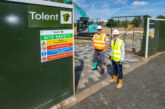
Peter Graddon, Director of Omfax Systems, discusses the importance of customer service in the social housing sector.
The key lesson we have learnt after 30 years of working alongside social landlords is that a successful housing business is all about customer service. There are no short cuts. The key is the culture of the whole organisation and the commitment of the leadership, putting customer service front and centre.
To ensure the customer is the focus, the landlord’s commitment to residents must be backed by an equally important commitment to staff. The Customer Service Advisor is the key person and with direct contact with residents, their role has to be given the status it deserves and requires. Social landlords need to ensure the right people are recruited with personal empathetic skills and then retained, with a commitment to ongoing training and personal support.
Homelessness remains a burning issue because social housing is not currently valued as it was in our society. 60 years ago, to get a council house was a real joy to families. Over the last 30 years, perceptions have gradually changed, and some housing associations have been placing the customer front and centre within their organisations. Some Resident Boards, Scrutiny Committees or Panels, oversee repairs and maintenance budgets of millions of pounds and are truly an integral part of the organisation’s success. Clearly this makes sense, as who is better placed to suggest priorities and efficiencies than the residents themselves who are at the sharp end.
Keyfax has assisted thousands of residents over the years using call-flow intelligence to transform conversations and online self-serve to diagnose solutions. This has promoted the same high levels of customer service being delivered to residents both in the contact centre and online, providing first call resolutions to repairs and maintenance issues.
Over the coming years, we will see the domination of AI, with machine learning responding to ever more complicated customer needs. There will be the proliferation of new technologies providing solutions to problems that we haven’t even imagined yet. Self-serve will be taken to further levels, and such things as ‘intelligent’ homes, driverless cars and ‘ether net’ conferencing will be a norm.
Much the same as humans learn and adapt, Jo Causon, CEO of The Institute of Customer Service, said recently: “Technology is becoming ever more intuitive, anticipating what we may need or be interested in based on our previous behaviour. This is service as it should be — making relevant suggestions and giving us prompts that smooth the way in our time-pressured lives.”
Causon is clear on one aspect however: “Don’t confuse intuitive technology with an understanding of human behaviour and emotions: there is a limit to what the technology can do.”
Although many of us now stream our news via digital or social media channels, there continues to be a need to read a physical copy of a newspaper. For customer services, whilst data sets can be refined to answer a plethora of enquiries, there continues to be times when there is a basic human need to speak with an advisor to resolve your inquiry. Keyfax provides those advisors with a record of contact between the resident and landlord, so there is a history of conversations, building on the familiarity and trust between landlord and resident. In this way, the need for customer services and for an overarching Customer Service Advisor, may never die. For now, it is my hope that Omfax has assisted to enable residents to find consistent solutions to issues when they have needed them, on a 24/7 basis.








